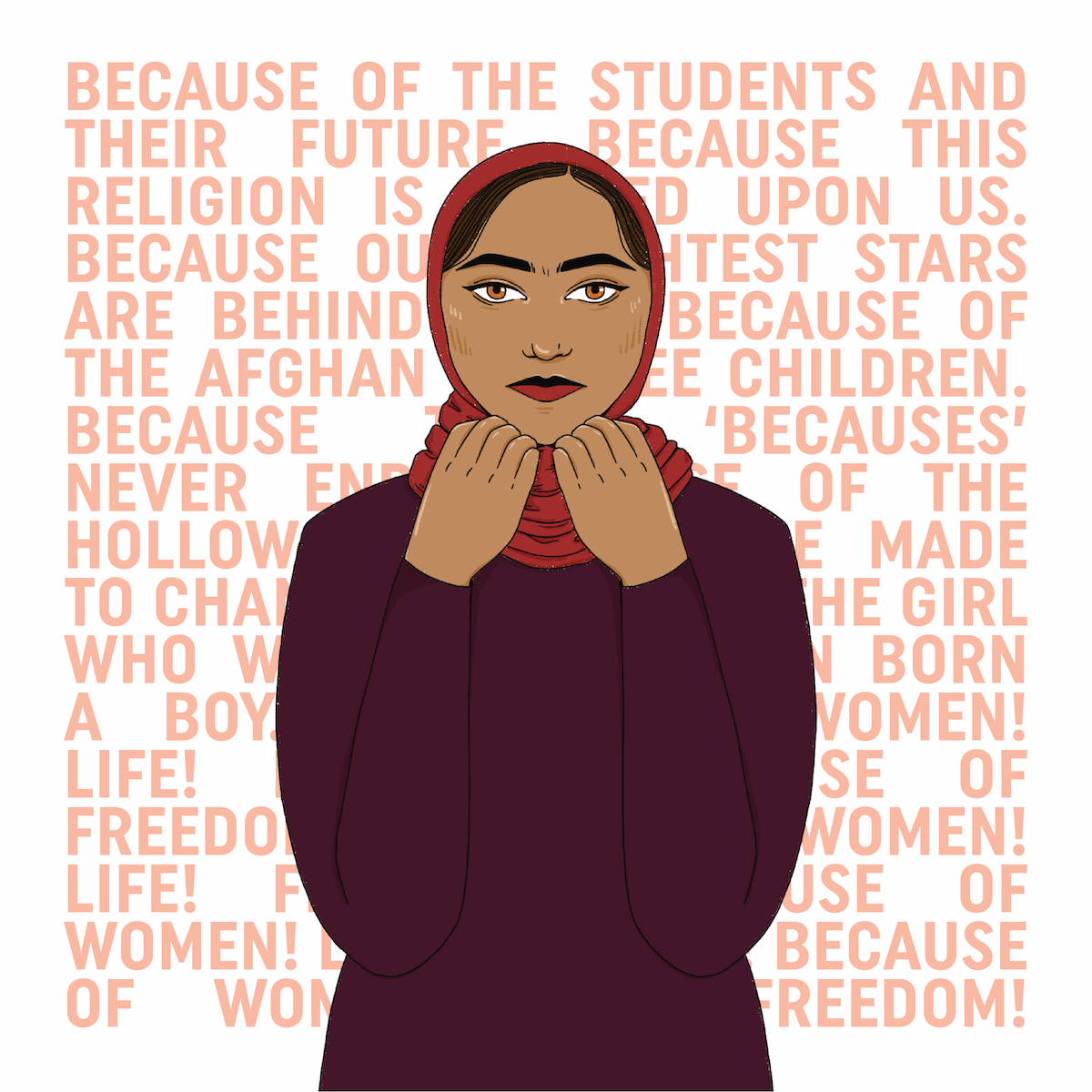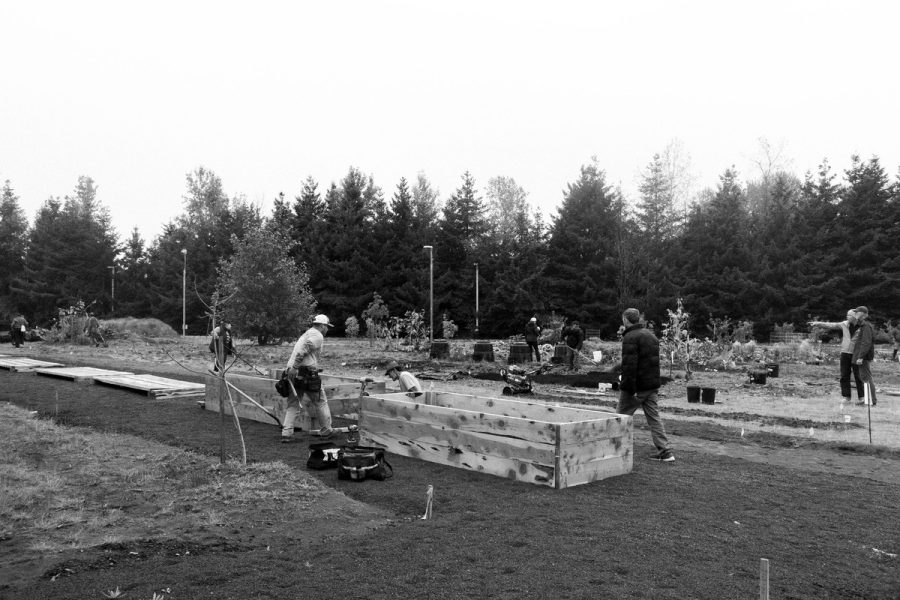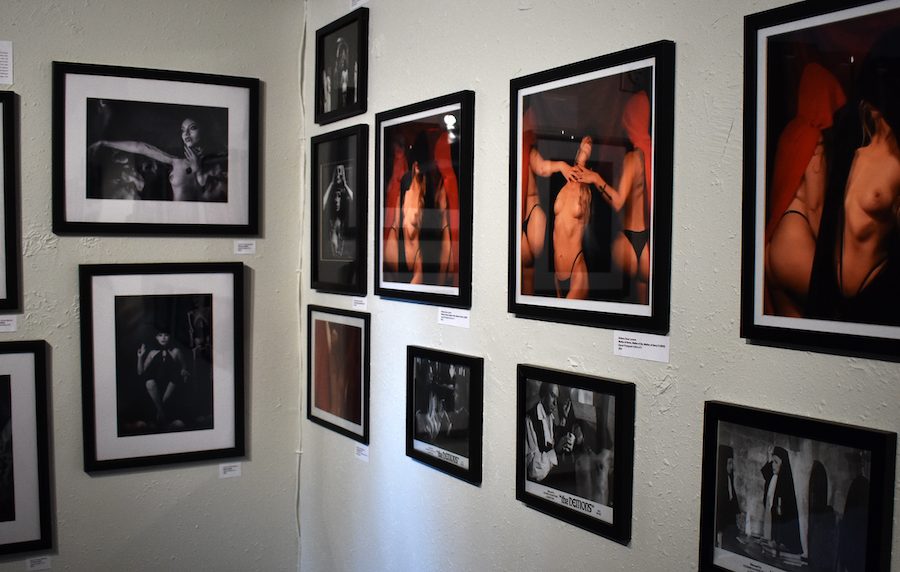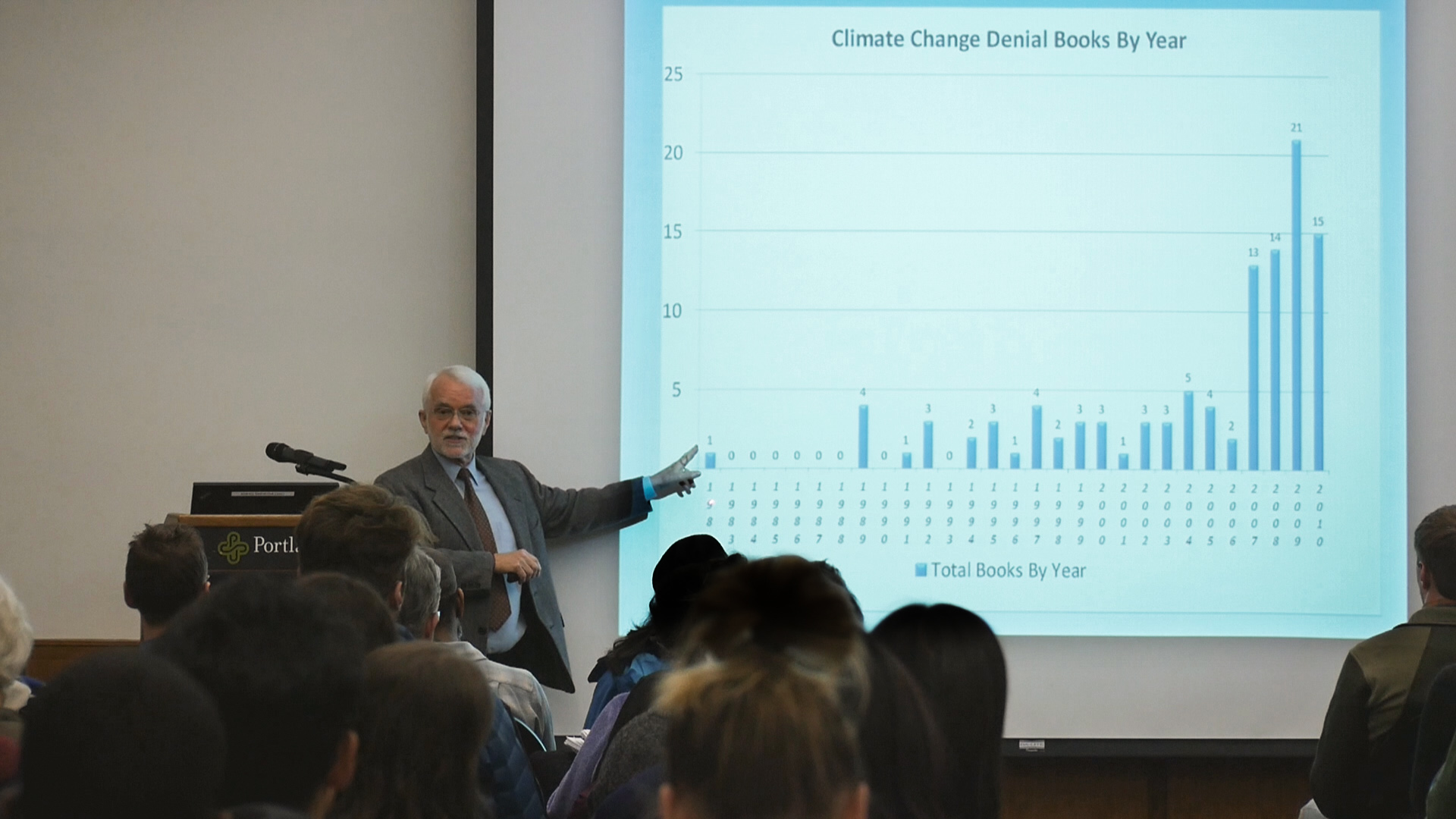On Saturday, Nov. 5, shouts from Portland’s Pioneer Courthouse Square rang out:
“Justice for Mahsa!”; “Portland be our voice!”; “Women! Life! Freedom!” The crowd brandished signs of the Iranian flag overlaid by the image of Mahsa Amini, a young woman whose brutal murder just two months ago catalyzed a worldwide feminist movement.
Mahsa Amini was detained by Iran’s morality police—who enforce a strict dress code, among other regulations on private life—for wearing her hijab too loosely. After being severely beaten while in custody, she was brought to a hospital where she was pronounced brain dead after suffering a stroke. In response to her death and the deaths of countless others like her, massive protests have erupted throughout Iran.
Zari Santner, Iranian-born Commissioner of Design Review at the Bureau of Development Service in Portland, explained the Iranian people’s reaction to the injustice of the regime.
“For nearly fifty days men and women, young and old, all segments of society and from all regions of the country have poured out onto the streets to seek justice for Mahsa Amini,” she said. “Their initial demand was the removal of compulsory hijab, but that has led to an outright demand for the removal of the oppressive and repressive laws of the government, and the accountability and removal of corrupt people and leaders who have slaughtered their people.”
These protestors are certainly not free from persecution either. Not only have hundreds died from violent police retaliation, but the Iranian regime has also subjected protestors to severe legal punishments, from whipping to death. Babak Jabbari, a member of the group Free Iran PDX which organizes Portland’s Iranian rallies, depicted the regime’s backlash to the public’s resistance.
“Now we have 1,500 people in custody, and they’re gonna go to trial and they’re gonna be charged with treason,” Jabbari said.
Nevertheless, the resistance persists—men, women and teenagers cut their hair and burn their hijabs as public spectacle. They shout their dissent, “death to the dictator!” Thousands, from Paris to Istanbul, Los Angeles to Montreal, echo the cries of Iranian protesters. “Women, Life, Freedom” has become a mantra unhindered by linguistic or geographic constraints, an international song of unanimity. But why has the world suddenly ignited in fervorous support of an issue so seemingly distant from the democratic sphere? Why are Portlanders engaging in a foreign nation’s civil unrest?
While the political intricacies of relations between the United States and Iran are complicated, at the core of this movement is a desire for the equal treatment of women, an issue which expands beyond the confines of geopolitical borders. Deborah Kafoury, current Chair of Multnomah County Commission, brought the call home during Saturday’s rally.
“When I see the young women and men in Iran standing up for their rights, putting their lives on the line, I can’t be complacent and I can’t be quiet,” Kafoury said. “The status of women in Iran is the status of women everywhere and that is what I truly believe.”
Kafoury painted a picture of how Portlanders can help create change in this moment through voting and actively supporting positive political agendas. “Support the effort to remove Iran from the UN Commission on the Status of Women,” she said. “I’ve heard Vice President Kamala Harris talk about this and loudly proclaim that she is going to do this, and we all stand behind her and with her.”
Jabbari built on Kafoury’s urge to vote and engage with one’s representatives. “Please, if you are voting for anyone, blue or red or whatever in the world—ask your representatives, ask the people that you choose to sit in office… not to have any dialogue, any relationship, any talks with this regime,” Jabbari said. “We need to get those people out of this country, and get some basic human rights in Iran. We deserve it. It’s been enough.”
The western world itself is far from total absolution of gendered oppression. Taravat Talepasand, Iranian-American interdisciplinary artist and professor of arts at Portland State, drew parallels between Iranians and Americans in their collective human desire for social justice and equality.
“Over the last five years we’ve seen this uprising and awareness for women in general, female reproductive rights for example, and there’s been a lot of that happening here in the U.S.,” Talepasand said. “We’re definitely progressive, but in a lot of ways the needle hasn’t moved as far forward as we would like to think… and if you think about the Middle East or Iran, it’s even more backwards in a way. There’s such a long history of women fighting for their rights and there’s always this pushback whether it be from men, but mostly from the Islamic regime.”
Talepasand advocated for connection between women of democratic nations and women of the Middle East. “You have a lot of women being born into this regime never having that kind of memory or choice of being able to wear what they want,” Talepasand said about conditions in Iran. “So you can imagine that when technology started kicking up and these women in this younger generation are able to see how other people like themselves, are able to have a choice—to do their education, to have jobs, to be able to dress the way that they want to, they started really waking up and being like, ‘it’s time to fight back.’”
Women are not alone in this movement. In addition to Iranian women and girls, a multitude of men have joined the movement in support, and the realization that it’s a fight for LGBTQ+ rights in Iran as well has grown.
“There is this wonderful coming together now, for the same fight,” Talepasand said. “Even though the slogan and the chant is for women, it’s become more about the entire community as a whole to dismantle the regime, to basically say—we love Iran, we want to be in Iran, but we really want the government to remove the regime.”
PSU functions as a space for students to contribute to social progress. One instance of this is an upcoming event with PSU’s Task for Diversity, Equity and Inclusion group, on Nov. 30, from 12:30 a.m. to 1:30 p.m. on the second floor of FMH for a luncheon.
Talepasand said she encourages students to come and get involved. Food will be provided and the luncheon will work as a space for students to discuss what they think may be missing on campus regarding the college’s diversity, equity and inclusion resources and policies.
Students can also help with a new billboard project, created by Talepasand, for the city of Portland which is promoting awareness about matters of social justice by designing and implementing billboards throughout the city. The first billboard has already gone into effect, designed with the slogan, “Women, Life, Freedom.” Students interested in contributing to this project are welcome to attend the Task for Diversity, Equity and Inclusion luncheon.
Beyond PSU, there are ample opportunities to stand in solidarity with the Women, Life, Freedom movement. Free Iran PDX holds a local rally every Saturday at Pioneer Place. For those interested in participating, more information can be found on Free Iran PDX’s Instagram page.
Here the local community has come together in support of Iran and sung the anthem of the Women, Life, Freedom movement, “Baraye.” Shervin Hajipour, who wrote the song by compiling Iranian demonstrator’s Tweets, was arrested shortly after publishing it. The song’s closing lines read as follows:
“Because of the students and their future
Because this religion is forced upon us
Because our brightest stars are behind bars
Because of the Afghan refugee children
Because these ‘becauses’ never end
Because of the hollow slogans we’re made to chant…
Because of the girl who wished she’d been born a boy
Because of women! life! freedom!
Because of freedom”






